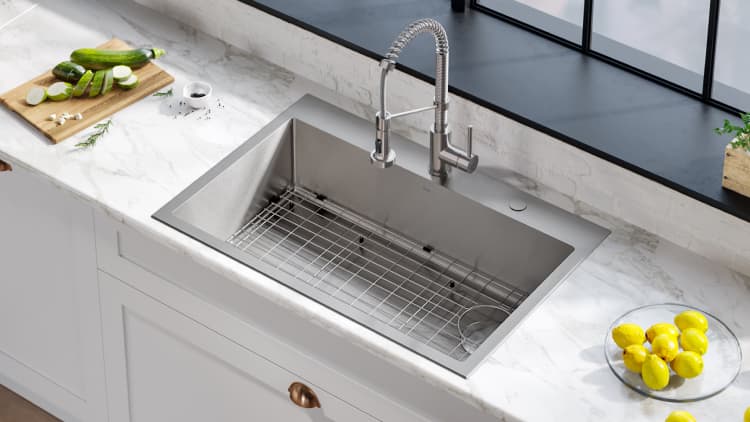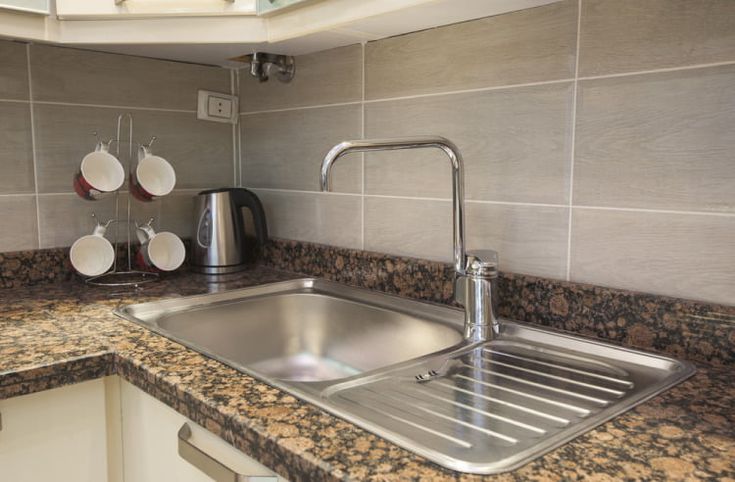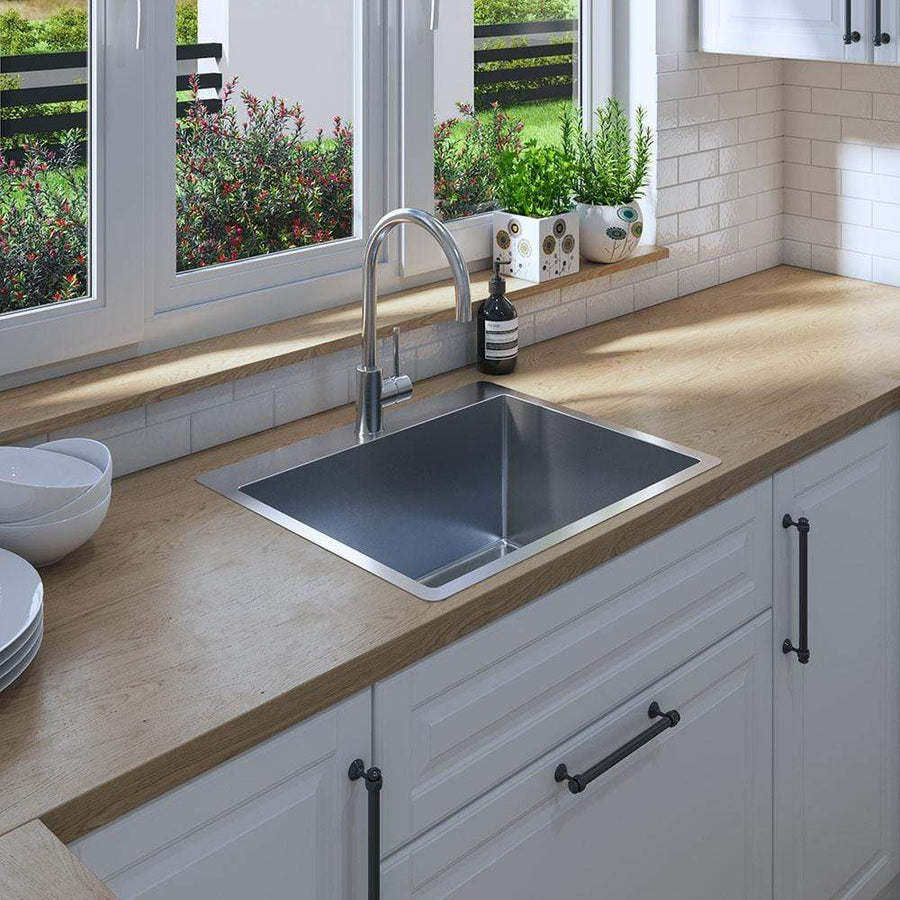Introduction: Understanding the Problem
Discovering water coming back up the kitchen sink can be a frustrating and concerning issue for homeowners. This phenomenon typically indicates a clogged or malfunctioning drainage system, which can lead to unpleasant odors, slow draining, and potential water damage if left unresolved. In this comprehensive guide, we will delve into the common causes of water backing up in the kitchen sink and explore effective solutions to address this problem.
Identifying the Causes: What’s Causing the Backup?
Several factors can contribute to water backing up in the kitchen sink, ranging from minor blockages to more serious plumbing issues. One common culprit is the accumulation of food scraps, grease, and other debris in the drain pipes, leading to obstruction and reduced water flow. Additionally, a malfunctioning garbage disposal or a damaged pipe could be causing the backup. It’s essential to identify the root cause of the problem to determine the most appropriate course of action.

DIY Solutions: Clearing Minor Blockages
If the backup is caused by a minor blockage, you may be able to resolve the issue yourself using simple DIY methods. Start by removing any visible debris or food particles from the sink drain using a pair of gloves and a flashlight. Next, try pouring boiling water down the drain to dissolve grease and loosen stubborn clogs. Alternatively, a mixture of baking soda and vinegar can help break down organic matter and clear the pipes. For more stubborn blockages, a plumber’s snake or drain auger may be necessary to physically remove the obstruction.
Garbage Disposal Maintenance: Keeping Things Running Smoothly
A malfunctioning garbage disposal can contribute to drainage issues in the kitchen sink. Regular maintenance is essential to ensure that the disposal operates efficiently and prevents backups. Begin by running cold water while using the disposal to help flush away food waste and prevent clogs. Avoid putting large or hard items, such as bones or fruit pits, down the disposal, as these can damage the blades and cause blockages. Periodically cleaning the disposal with ice cubes and citrus peels can help eliminate odors and keep it running smoothly.

Professional Assistance: When to Call a Plumber
In some cases, resolving drainage issues in the kitchen sink may require the expertise of a professional plumber. If DIY methods prove ineffective or if the problem persists despite your efforts, it’s time to enlist the help of a licensed plumber. A plumber can conduct a thorough inspection of the drainage system, identify any underlying issues, and recommend the most appropriate solutions. Whether it’s repairing damaged pipes, replacing a malfunctioning garbage disposal, or performing hydro jetting to clear stubborn blockages, a qualified plumber has the knowledge and tools to resolve the problem effectively.
Preventive Measures: Avoiding Future Backups
Prevention is key to avoiding future instances of water backing up in the kitchen sink. Implementing simple preventive measures can help maintain a healthy drainage system and minimize the risk of clogs and backups. This includes avoiding pouring grease and oil down the drain, using a drain strainer to catch food particles, and running hot water through the sink after each use to flush away residue. Regularly cleaning the garbage disposal and scheduling routine maintenance checks with a plumber can also help prevent issues before they escalate.
Investigating Further: Checking for Structural Issues
In some instances, water backing up in the kitchen sink could indicate underlying structural issues with the plumbing system. Aging pipes, corrosion, or improper installation may be contributing factors. If DIY methods and basic maintenance fail to resolve the problem, it’s crucial to inspect the plumbing system for any signs of damage or deterioration. Look for leaks, cracks, or rust along the pipes, as these could indicate more significant issues that require professional attention. Addressing structural issues promptly can prevent costly repairs and potential water damage to your home.

Advanced Techniques: Hydro Jetting and Drain Camera Inspection
For persistent or stubborn clogs that resist traditional methods, advanced techniques such as hydro jetting and drain camera inspection may be necessary. Hydro jetting involves using high-pressure water to blast away debris and buildup from the interior walls of the pipes, effectively clearing even the most stubborn blockages. Drain camera inspection allows plumbers to visually inspect the inside of the pipes to identify any obstructions, damage, or structural issues that may be causing the backup. These advanced techniques provide a comprehensive solution for restoring proper drainage and preventing future backups.
Environmental Considerations: Eco-Friendly Solutions
As awareness of environmental issues grows, homeowners are increasingly seeking eco-friendly solutions for plumbing problems. Fortunately, there are several environmentally conscious options available for addressing water backups in the kitchen sink. Bio-friendly drain cleaners utilize natural enzymes and bacteria to break down organic matter and clear clogs without harsh chemicals. Additionally, implementing water-saving practices such as fixing leaks, installing low-flow faucets, and using aerators can help conserve water and reduce the strain on the plumbing system, minimizing the risk of backups.

Community Resources: Seeking Assistance
In some cases, homeowners may face challenges in resolving drainage issues on their own, particularly if they lack the necessary tools or expertise. Fortunately, there are community resources available to provide assistance and support. Local government agencies, nonprofit organizations, and community outreach programs may offer workshops, seminars, or referral services to connect homeowners with qualified plumbers or resources for addressing plumbing issues. Don’t hesitate to reach out to these resources for guidance and assistance in resolving water backup problems effectively.

Conclusion: Restoring Proper Drainage
In conclusion, dealing with water coming back up the kitchen sink can be a challenging issue, but with the right approach, it can be effectively resolved. By understanding the underlying causes of the backup, implementing DIY solutions for minor blockages, maintaining the garbage disposal, seeking professional assistance when needed, and adopting preventive measures, homeowners can restore proper drainage and prevent future backups. Remember, addressing drainage issues promptly is essential to avoid more significant plumbing problems down the line. With proactive maintenance and regular care, you can keep your kitchen sink flowing smoothly and avoid the headache of water backups.


